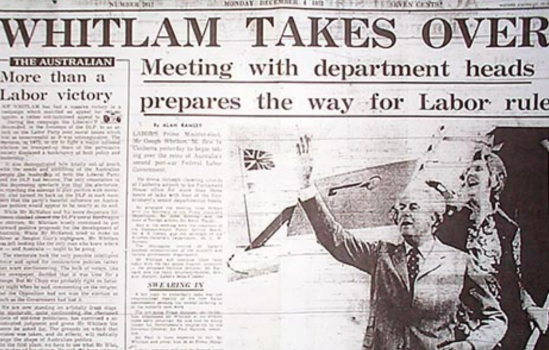Traditional media’s influence over election outcomes has markedly declined, says a public policy think tank.
In a report analysing the weakening power of newspapers and broadcasters, The Australian Institute cites the 3 May federal election as “proof that the influence of major media companies over voter opinion has declined.”
Indeed, while Labor’s share of newspaper endorsements decreased to less than a third during the election campaign, the party still went on to increase its share of both seats and primary votes.
Australia’s traditional media once had substantial influence on Australian politics, says the report’s authors. “Securing newspaper endorsements was once a key part of running a successful Australian election campaign.” Televised debates were also major campaign events “that shaped the attitudes of a decent number of voters.”
Faced with media oligopolies, politicians and parties were “anxious to cultivate the support” of the likes of Rupert Murdoch. For decades, wielding the might of his mastheads, Murdoch played the role of “political kingmaker”.
Using the 1972 federal election as an example, the report’s authors note Murdoch played a “substantial role” in Labor’s victory by “heartily endorsing” Gough Whitlam’s agenda in The Australian newspaper.

Today, the kingmaker’s influence is ebbing and “the relevance of newspaper endorsements to election outcomes has markedly faded.”
As The Australian Institute analysis shows, Prime Minister Anthony Albanese leads the first Australian Government to have, so far, never been endorsed by The Australian since the newspaper was founded in 1964. Moreover, the first leaders’ debate on Murdoch-owned Sky News Australia attracted at best 2 per cent of enrolled voters, signalling that TV debates can no longer shape public opinion.
Statistics consistently and increasingly show fewer people than ever paying attention to what major media companies such as News Corp publish and broadcast. And in 2024, for the first time ever, the majority of Australians’ primary source of news was either online or via social media.
“The implications of the marked decline of traditional major media companies’ influence are significant,” says the The Australian Institute report.
The path is now open to a different kind of politics
With readership of daily newspapers plummeting and consumption of nightly TV news on the wane, traditional media no longer has the clout to set political agendas and break prime ministers, and Australian governments “should no longer fear retribution from media organisations opposed to important reforms,” says the think tank.
With its “monopolistic grip” loosened by digital media, legacy media has been reduced to bellowing “from the sidelines”. As was witnessed in the federal election, “the newspaper editorials came down on one side, and the people came down on the other.”
This decline has “significant implications” for the next chapter of Australian democracy, says The Australian Institute. “Following Albanese’s substantial victory without the press in his corner, he now has an unprecedented opportunity to govern boldly. The path is now open to a different kind of politics, where Australia’s leaders can govern with courage rather than in fear.”




Leave a Reply